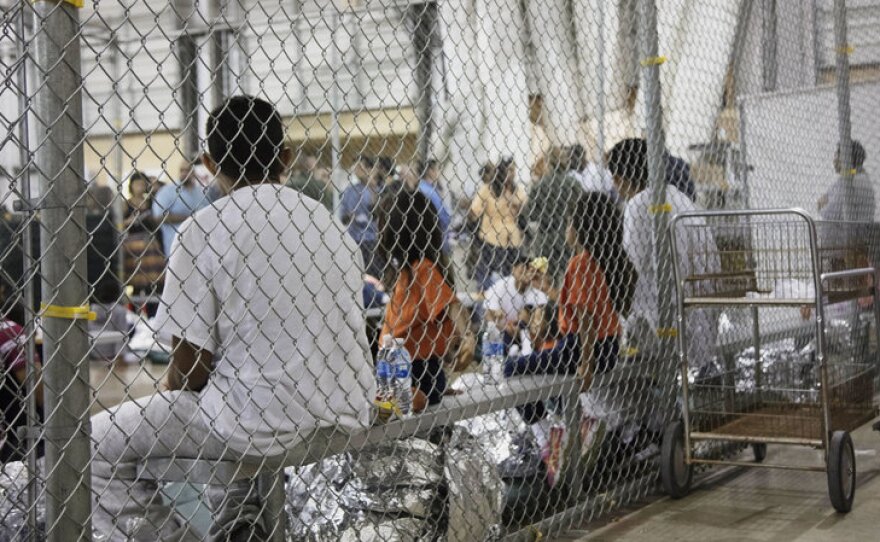A Harvard brain scientist who studies trauma in children is warning of lasting damage to the young migrants who've been separated from their parents at the border.
When neuroscientist Charles Nelson saw photos of children crowded in facilities, he immediately thought of the orphans he studied in Romania, where cold, unemotional caregiving led to severe developmental problems.
"People get in their heads, 'We'll just provide the basic needs,'" he said. "'Feed them, keep them warm, give them bathroom facilities and something to entertain themselves and they'll be fine.' [That's] completely missing the point of caregiving."
DOCUMENTARY: Life After Stress: The Biology Of Trauma And Resilience
Although President Trump signed an order to halt the separation of families, thousands of children are still away from their parents, with no plan for reunification, and -- Nelson said -- they're likely terrified. While some children do bounce back from trauma, he said this cohort is likely to be primed for damage.
"So they're fleeing an area where there's already high levels of violence and potentially traumatic experiences,” he said, “and then they have this hazardous journey to the border. Those two things may sensitize the system, so that this is sort of a tipping point -- the separation."
Nelson said the language and age of the children also matter. Toddlers, for instance, won't understand that separation might only be temporary.
“As you know from driving in a car with 3 and 4-year-olds who are saying, 'When are we going to be there?' every 10 seconds, imagine trying to deal with 2 and 3-year-olds and saying, 'Well, you'll see your mommy and daddy soon.' Well, what does soon mean?" he said.
And even if families stay together in the future, being locked in detention centers is likely to make it hard for stressed-out adults to nurture their children properly.
“Even when they're reunified,” he said, “unless they take great pains to deal with the mental health needs and emotional needs of these families, it will be a step up from what we're seeing now, but there'll still be some big challenges.”
Nelson said, as a scientist, he tries to stay out of politics. But these events have tested him.
“I want the science to drive the decision making and the policy,” he said. “But if we have people who don't believe in science, then what's left for us to do?”





